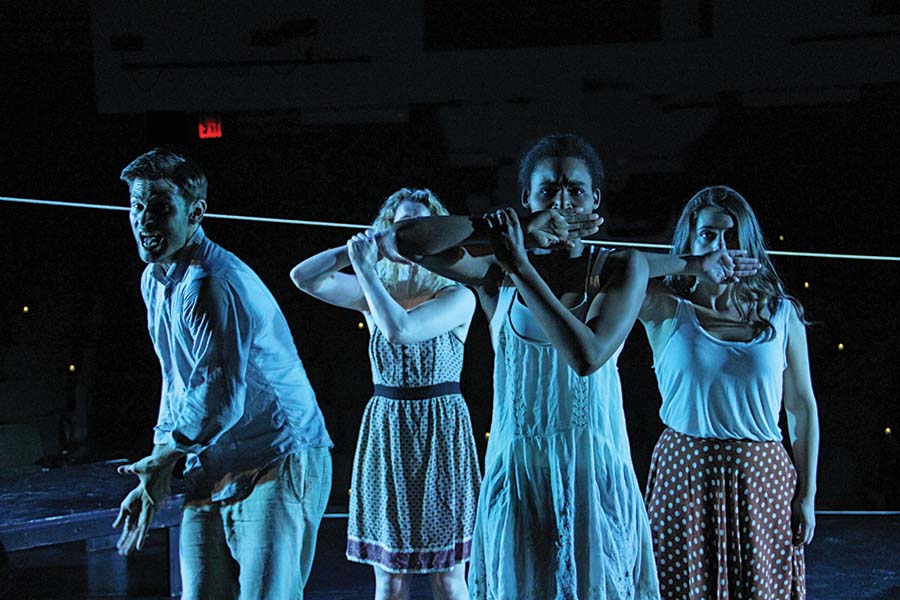Offscript: Stage Migrations
Blanka Zizka, Carmen Rivera, Ed Sylvanus Iskandar, Maria Manuela Goyanes, and Ngozi Anyanwu discuss the immigrant and first-generation American experience in theatre.

American theatres have long dramatized stories of immigration, assimilation, and resistance, as well as including immigrants among their practitioners. This special issue looks at not only how immigrant’s stories have been told onstage, from Awake and Sing! to Vietgone, but at how immigrants fare as workers in today’s theatre. It also looks at some of the ways transnational theatre troupes are facing the world’s refugee crisis.
Blanka Zizka, Carmen Rivera, Ed Sylvanus Iskandar, Maria Manuela Goyanes, and Ngozi Anyanwu discuss the immigrant and first-generation American experience in theatre.
On May 23, AT senior editor Diep Tran will moderate a conversation with Blanka Zizka, Carmen Rivera, Ed Sylvanus Iskandar, Maria Manuela Goyanes, and Ngozi Anyanwu.
America’s self-definition as a nation of immigrants is under threat, as are immigrants themselves. How are U.S. stages and artists dramatizing this moment?
America may call itself a nation of immigrants, but our stories are still scarce on U.S. stages. Let’s change that.
Theatres find new ways to relate to immigrant and refugee communities, not only as audiences but as partners.
DACA recipients, feeling unwelcome in the country they call home, claim a home onstage.
What roles can theatre play in the global refugee crisis? Healing, representation—and diversion.
When we practice lifesaving techniques in the pool, we get to choose who is drowning and who is saving. When we get in the boat…
So much American theatre, from O’Neill to Udofia, has been inspired by the stories of playwrights’ immigrant parents.